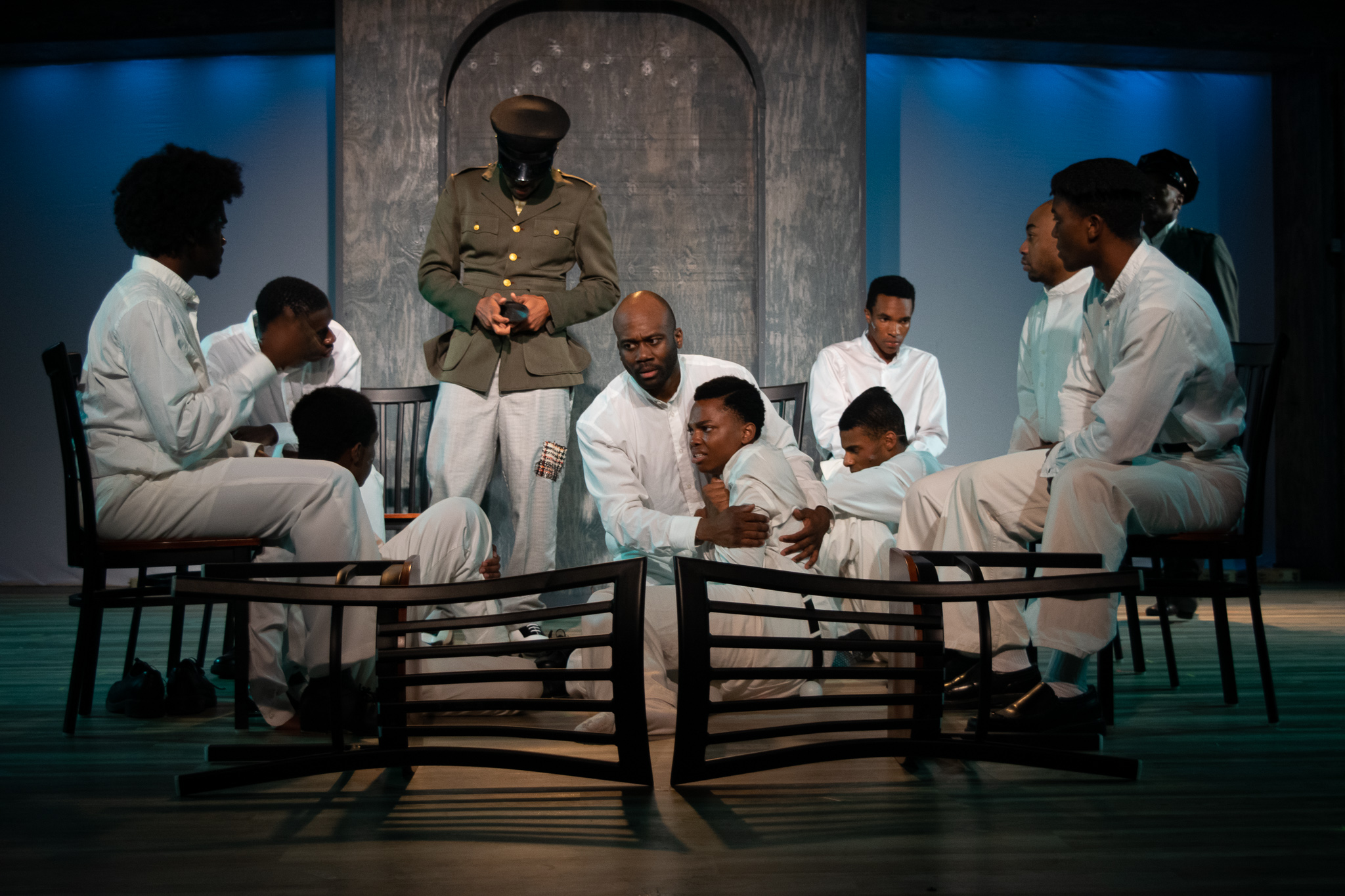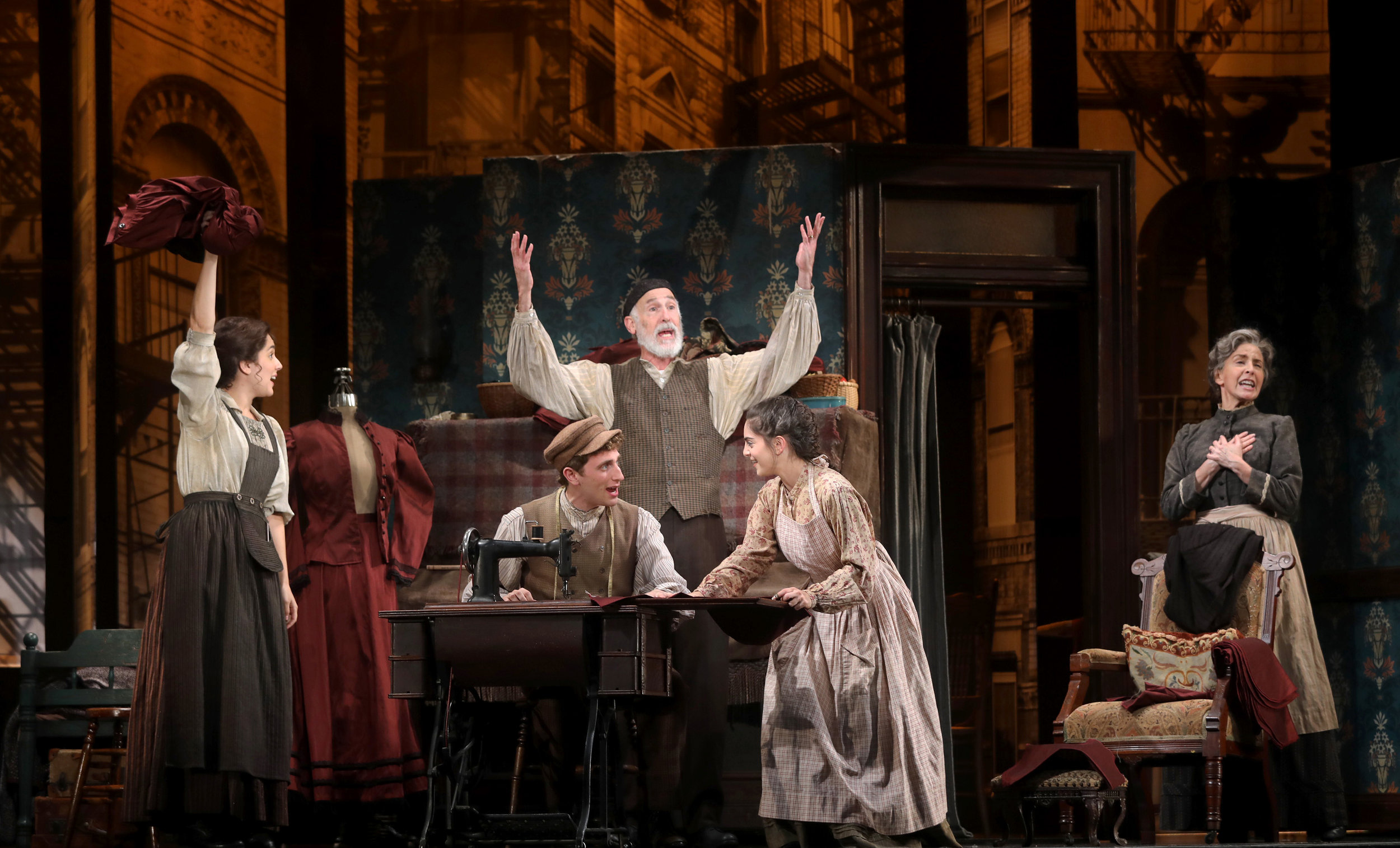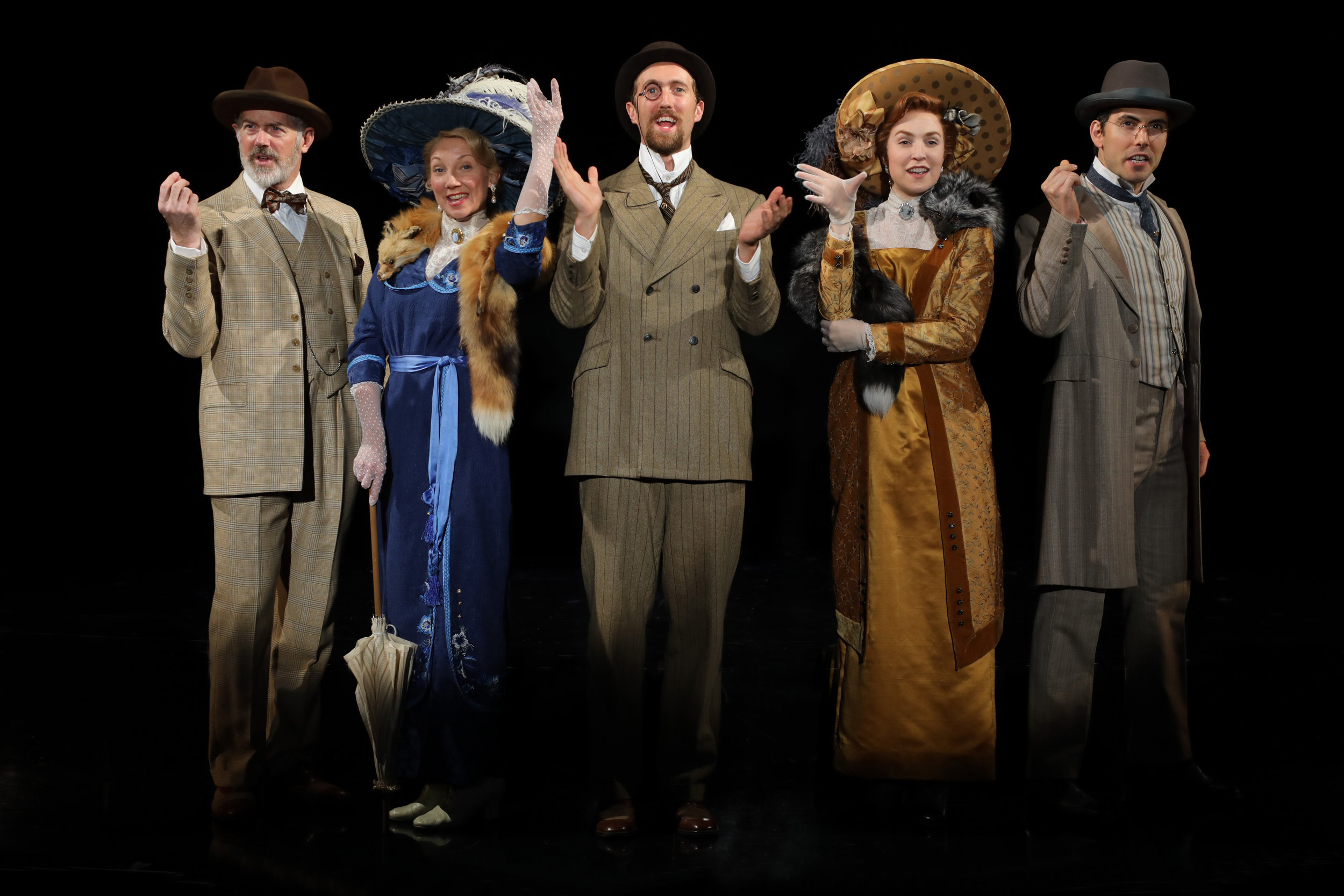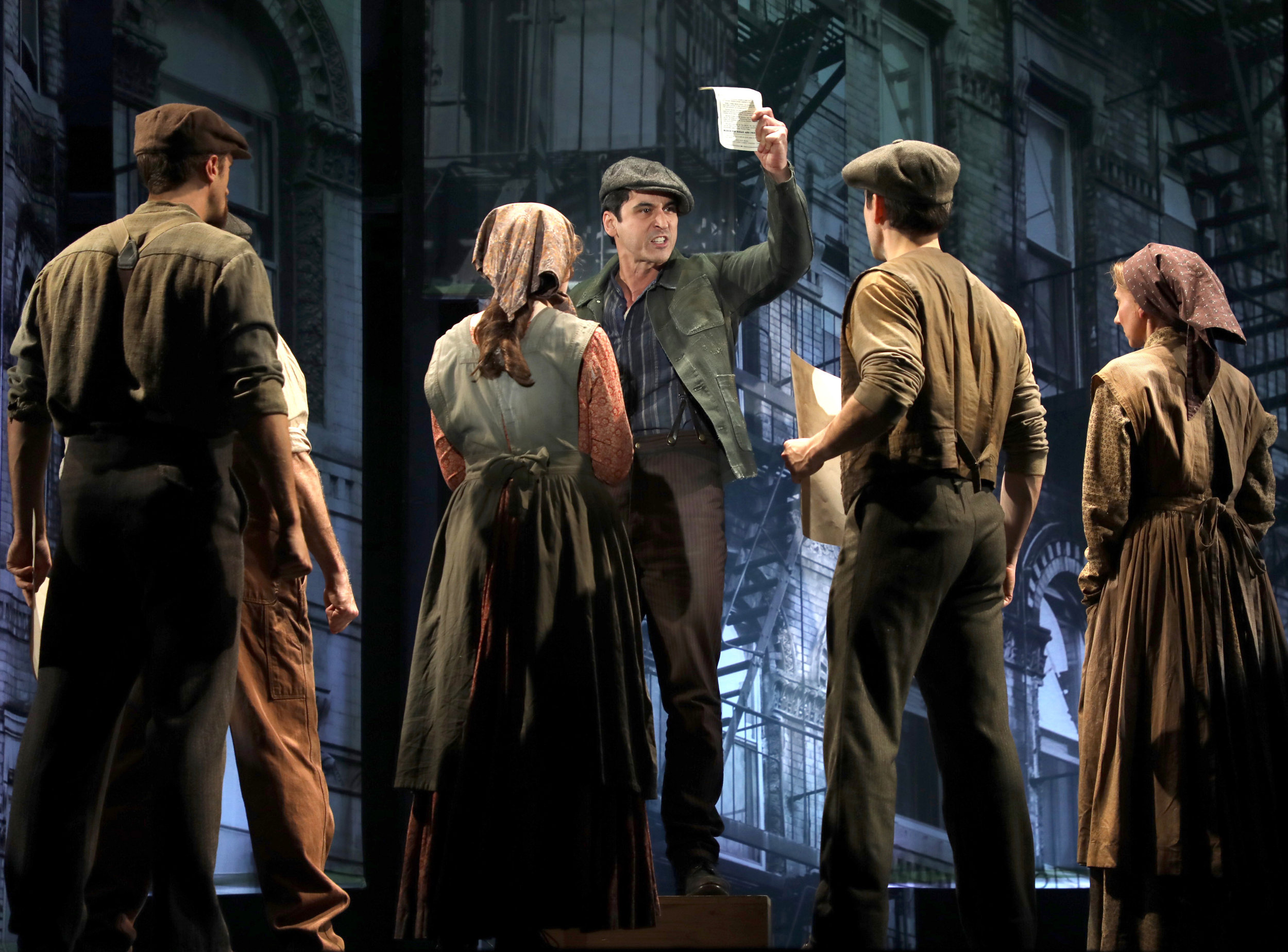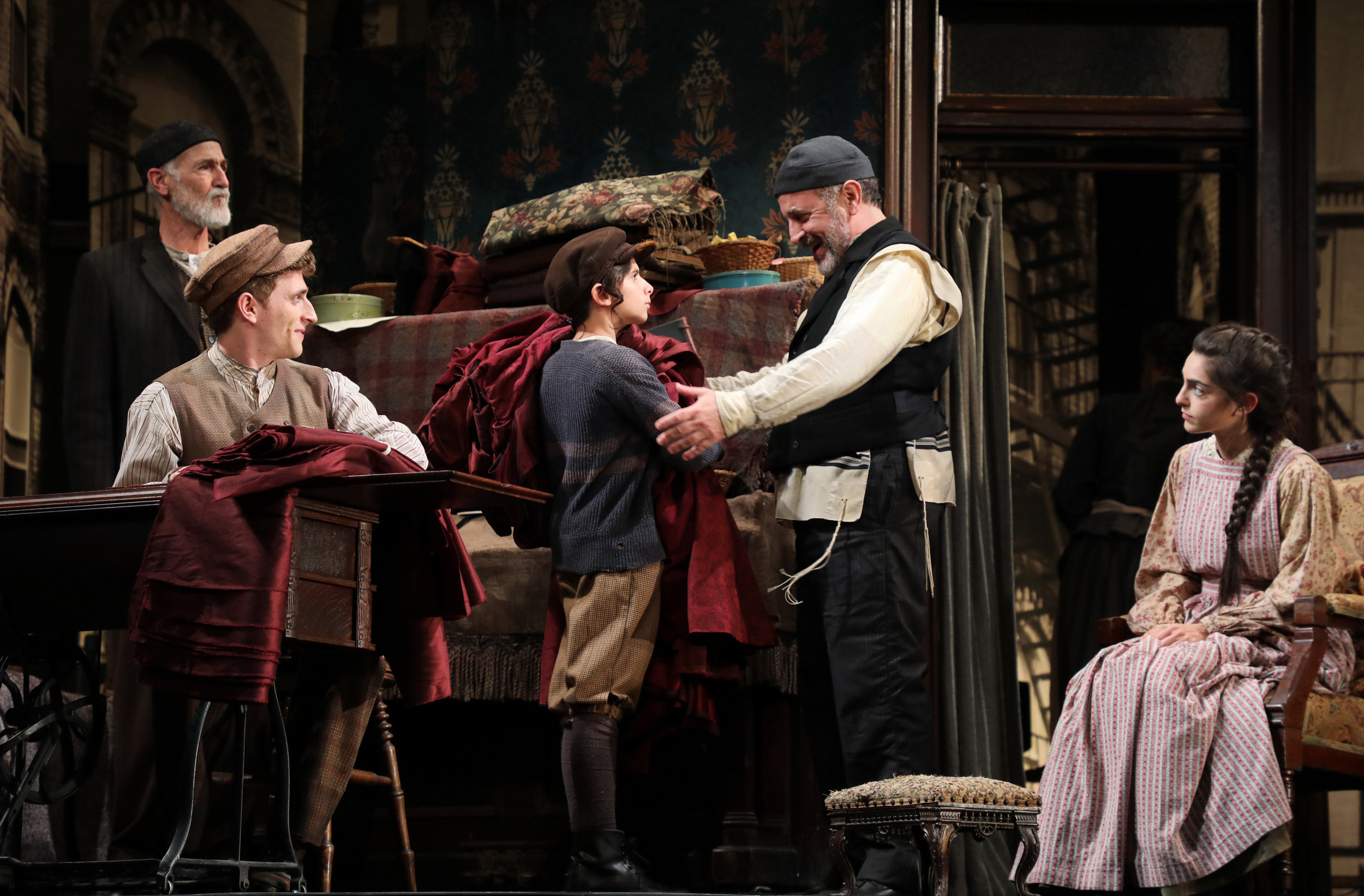Review of The Scottsboro Boys, Playhouse on Park
As composers of musicals, John Kander and Fred Ebb have a knack for subject matter potentially unsettling. Their Cabaret is having a resurgence in Connecticut, with three productions in 2019, and for obvious reasons. The rise of Nazism in Berlin in the uneasy 1930s finds a ready parallel in the swerve to the Right in many countries in the dwindling twenty-teens of this century.
At Playhouse on Park through August 4 is a musical by Kander and his late partner Ebb, with book by David Thompson, that is just as timely. The Scottsboro Boys returns to a staggering miscarriage of justice in 1930s’ Alabama that makes us revisit the long, hard fight for civil rights for African Americans in the twentieth century. And it also comments tellingly on the staggering miscarriages of justice that sparked the Black Lives Matter movement in 2013—three years after the show opened and closed on Broadway.
The cast of Playhouse on Park’s production of The Scottsboro Boys, directed by Sean Harris (Photographs by Meredith Longo)
At the time there were raised eyebrows—and outright protests—that a modern musical would adapt the manner of the minstrel show, a racist form of entertainment in which white performers, in blackface, imitated and caricatured blacks. Yet the minstrel show format brings to the Scottsboro Boys’ story both a vitality and an irony that would not be easily attainable otherwise. To have these engaging and entertaining actors dancing and singing about such a prickly topic would be unthinkable without the frame: we’re watching a cast who, under the imprimatur of their “master,” the Interlocutor and only white cast member (Dennis Holland, condescendingly grand), are forced to put on a jovial version of an injustice. The vitality comes from the fact that the minstrel show, as a form, influenced so much musical comedy, and the irony comes from the performers as knowing commentators on caricatures.
The story: the “boys” were nine African American youths from age 13 to 20 who were riding a train they had hopped—mostly separately—from Chattanooga to Memphis. A fight broke out when white rail-riders tried to force the blacks off the train. The whites reported to the sheriff in Alabama that they had been attacked, and the nine were detained. Two white women who had also hopped the train (and were possibly soliciting) accused the youths of raping them. With a lynch mob forming, the nine were tried without adequate counsel and were convicted and sentenced to death, despite the medical examiner’s evidence that the women had not been raped. Protests and support from the north—including the NAACP and the U.S. Communist Party—eventually brought about a retrial with Samuel Leibowitz of New York representing the accused. They were found guilty again, though one of the accusers recanted her earlier charge. Retrials continued and eventually, through certain plea deals, the four youngest of the nine were allowed to go free. Another was shot, nonfatally, for attacking a guard, two others escaped. Eventually—but not until 2013!—the three unpardoned were granted posthumous pardons. All had been burdened by their conviction, imprisonment, and the lengthy and publicized trials that continued to uphold the earliest verdict without sufficient evidence (the nine, in their individual defenses, gave contrary evidence as well, at times accusing one or some of the others).
Bones (Ivory Mckay), Tambo (Torrey Linder)
Key to the spin The Scottsboro Boys gives to this material are the traditional minstrel-show roles of Bones (Ivory Mckay) and Tambo (Torrey Linder), two showmen, both excellent, who abound in bad puns, overt silliness, and who project a double-edged awareness that satirizes the conventions of the show as well as the outrageousness of the story the musical tells. They enact a racist white sheriff and his deputy, white lawyers (including a drunk-as-a-skunk defense attorney), and guards. Their obvious fun with these caricatures of caricatures gives even the obvious and corny aspects of the humor its bite. And their showdown in the retrial, as the anti-Semitic Attorney General (Mckay) vs. Leibowitz (Linder), shows how playing upon prejudices will often carry the day..
Granted, the Scottsboro story doesn’t have the trajectory of a well-made plot and the collective villainy of the authorities confers a questionable heroism on the nine accused, simply by virtue of being innocent. That means that most of the show’s strength comes from how well it arouses sympathy for the hapless predicament of the accused nine. As Haywood Patterson, who is presented as the strongest willed among them, Troy Valjean Rucker draws attention early in the show with “Nothin’”—a song that sums up a world-weary ethos—and later with “You Can’t Do Me,” a song that registers his unwillingness to admit guilt even if it means getting a pardon. Another standout number is “Never Too Late,” with Jaylan Evans as Ruby Bates making her courtroom retraction an over-the-top, high-stepping vaudeville number.
Center, seated: Heywood Patterson (Troy Valjean Rucker) and Eugene Williams (Trishawn Paul) with the cast of The Scottsboro Boys
The songs are full of zest, and a few early on—like the anxious “Electric Chair” and the stirring “Go Back Home”—benefit from Trishawn Paul’s lovely tenor. Choreographer Darlene Zoller and director Sean Harris, two of the three founders of Playhouse on Park, maintain the high standard in ending their tenth season that they brought to last season’s closer, In the Heights. While not as exuberant and contemporary as the latter, The Scottsboro Boys earns admiration for its nimble handling of shameful truths—the farce of injustice and overt racism—and for its stripped-down design—which makes the show feel almost improvised—and for keeping its audience in the palm of its hand from the glad-to-meet-you opening to the point at which the troupe departs the frame.
Throughout the show its only female cast member, Renee J. Sutherland, is onstage as “the lady,” an African American woman holding a book and looking on as a witness aghast at what she sees, and possibly as a researcher encountering this almost forgotten story. At the close of the show, her identity is revealed to show a continuity with what Thompson and company most likely saw as the dawn of a more enlightened age. In any case, reminders are necessary.
The Scottsboro Boys
Music and Lyrics by John Kander & Fred Ebb
Book by David Thompson
Directed by Sean Harris
Orchestrations: Larry Hochman; Musical Arrangements: Glen Kelly; Vocal Arrangements: David Loud; Choreographer: Darlene Zoller; Music Director: Melanie Guerin; Scenic Designer: David Lewis; Lighting Designer: Johann Fitzpatrick; Costume Designer: Vilinda McGregor; Props Artisan/Set Dresser: Eileen O’Connor; Sound Designer: Rider Q. Stanton; Stage Manager: Mollie Cook
Cast: Cedrick Ekra, Jaylan Evans, Cedric Greene, Jerry Hamilton, Dennis Holland, Torrey Linder, Ivory McKay, Trishawn Paul, Grant Reynolds, Alex Robertson, Troy Valjean Rucker, Justin Sturgis, Renee J. Sutherland
Playhouse on Park
June 26-August 4, 2019


